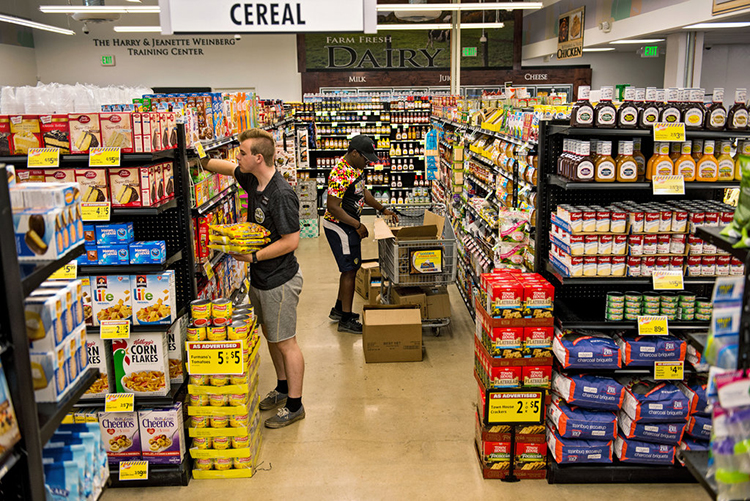
The world has changed a lot in the last week and a half, and maybe one of the only silver linings in this situation is that we’re realizing the difference between what we need in order to survive and what we want. I want to be able to turn on March Madness this weekend, but I will be okay without it. However, I couldn’t manage for very long without bread, milk, meat, eggs, fruits, and vegetables . . . food is the first thing we look for in times of question.
We’ve seen this need firsthand recently in the form of scant grocery store shelves, picked over cases, and long checkout lines. For most consumers, those can be scary sights. At the same time, though, we can remember that we are fortunate to live in the most abundant country in the world. This applies to food, too, even today and tomorrow and next week.
We know that farmers are still farming. Animals and plants haven’t stopped growing, although labor challenges and market questions are becoming more influential. The New York Times even published quotes from the North American Meat Institute, the National Chicken Council, and FreshDirect, all explaining that there is no shortage of food being produced.
Likewise, processors are still processing, and truckers are still trucking. Many plants are ramping up production to stay on top of demand. In the same New York Times article, the chief operating officer of Costco said, “Transportation is functioning, our suppliers are working around the clock, and the flow of goods is strong.” USDA inspectors are still working to ensure all food products for sale are as safe as possible.
Agriculture will surely be affected by the virus, but many across the system are working to make sure our needs for food are and will continue to be met. The main challenges for food may be getting shelves stocked fast enough to keep up with demand. Many stores are already taking measures to deal with this onslaught as best as they can, although it is still an uphill battle. The USDA encouraged consumers that, “Our supply chains remain strong, so please do your part to ensure we stay calm and act responsibly.”
It’s definitely not ideal, and it’s certainly of absolute importance that every person get the food they need. A slightly slimmer selection at the store is a stark reminder to us all that food is not grown on grocery store shelves. We have American agriculture to thank for the choices to meet our nutritional needs, and for the security in knowing that those shelves will be restocked very soon.

Katelyn Allen joined the Hoard’s Dairyman team as the Publications Editor in August 2019. She manages the development, editing, and marketing of the variety of resources offered through the Hoard’s Dairyman Bookstore. Katelyn is a 2019 graduate of Virginia Tech, where she majored in dairy science and minored in communication. Katelyn grew up on her family’s registered Holstein dairy, Glen-Toctin Farm, in Jefferson, Md.








